A report has helped to pave the way for an elected mayor to run Brighton and Hove – and possibly even the wider Greater Brighton area.
It is one of two alternatives being considered after a review of the way that Brighton and Hove City Council is run.
The other is a return to the recently scrapped “cabinet” system – decried at the time as unpopular, undemocratic and divisive – where the largest minority party made most of the key decisions unchallenged.
The council held a referendum locally in which voters roundly rejected the prospect of an elected mayor. As a result, members dropped the newly adopted “leader and cabinet” system and went back to their traditional committees.
But after a change in the law the council was forced to adopt the cabinet system. When the law changed again the council switched back to the committee set-up.
And while the current system of decision-making by committees is regarded as more open, democratic and accountable, officials and some councillors believe that it is too slow – and agreements are hard to reach.
Supporters of the present system said that this reflected an area where three parties vie to run the council but none could persuade voters to give them an overall majority.
Some Labour members believe that the party would win a mayoral election in Brighton and Hove on the basis of the number of votes cast for the party at various recent elections.
But others are concerned that if mayoral elections ended up being for the Greater Brighton area, the Conservatives would have a permanent in-built majority.
The potential changes – to having an elected mayor or cabinet system – are alluded to in an unpublished report after a review which took place in April.
The council asked a team from the Local Government Association (LGA) “to consider, review and provide feedback on governance”.
The feedback report said: “There is a view that the council’s committee system is not fit for purpose and does not allow for timely decision-making.
“Any changes to governance would be for the next administration, with all-out elections in 2019.”
The report also described relations between the council and unions as “dysfunctional” and said: “Trade unions within the council could play a valuable role in future. However, this requires dramatically improved relationships between all concerned.
“The current set of relationships is recognised by all as being dysfunctional. Progress can only be made if there is agreement that the relationship needs to be ‘re-set’.”
The LGA Corporate Peer Challenge Feedback Report also recommended that councillors no longer hear appeals from staff who have been dismissed.
The report said: “It is vital to ensure that roles and responsibilities within the council are clear and that they are then respected and adhered to.
“The role of elected members is to set policy. Officers are then responsible for implementing it.
“Elected members also need to provide a climate that allows managers to manage.
“As part of this, we recommend that elected member involvement in HR (human resources) operational matters should cease. Blurring of respective roles and accountabilities is unhelpful.”
But one member said that the report ignored the role of councillors in holding officials as well as the political leadership to account for the way that policies and decisions were implemented.
This included the delivery of services and “the customer experience” – and was not about trying to second-guess managers.
And if the HR recommendation were to be adopted, it would remove a safeguard that had been widely adopted – not just by councils.
School governors, for example, typically heard appeals from staff facing dismissal – as did non-executive directors (the equivalent of backbench councillors) on the Brighton and Sussex University Hospitals NHS Trust board. And private company non-executive directors also often had a similar role.
The report urged the council to help councillors represent their wards more effectively.
It said: “We see the potential for an enhanced role and support for councillors in their ward role going forward.
“Ward councillors require more support from the council.
“At present, endeavouring to progress casework issues within the council on behalf of their local residents is, at best, experienced as ‘hit and miss’ by those we spoke to – which seems to be symptomatic of the ‘customer experience’.
“In the absence of an established system, councillors are left to navigate their way through the organisation as best they can.”
But one former councillor said that there was a protocol for relations between councillors and officials in the council’s constitution. While it could be improved, it was up to members and officers to make it work properly.
The former councillor said that almost half the 54 members of the council were newly elected in 2015 – a much higher proportion than usual.
And despite the council offering much better induction and training than in the past, it was inevitable that it would take time for the new members to “bed in”.
Many officials were new too – and the council had lost several long-serving, capable and knowledgeable middle and senior managers who would have previously been able to resolve casework issues.
This may have contributed to the report saying: “Local people have comparatively low levels of trust in the council – and the council performs below the national average in relation to being seen by local residents to act on their concerns.”
The report raised concerns about the community and voluntary sector being sidelined, especially as they were often well placed to help the council ensure that its cash went further.
It praised the Greater Brighton Economic Board – a new organisation that includes the leaders of Brighton and Hove City Council and neighbouring councils, university and college bosses and business representatives.
The New Homes for Neighbourhoods housebuilding programme – and the ambitious joint venture with Hyde to build 1,000 homes – also won praise.
But there were concerns about delivery by the council as a “corporate body” – an implicit reference to the leadership capacity and party political battles taking place around housing.
The report emphasised the importance of “capitalising on opportunity” and said: “The democratic mandate of the council is fully recognised and respected by partners and stakeholders.
“Partners are seeking clarity and consistency from the institution that is Brighton and Hove City Council in the form of a vision that will withstand the test of time and changes in the political context.
“The vision must be capable of transcending political cycles in order for the council to generate the necessary confidence among its stakeholders.”
And returning to the way that the council is run – by committee, cabinet or elected mayor – the report highlighted the tensions and polarities in the current “complex environment”.
The report said: “It leads to a lot of conjecture and a range of narratives have evolved – ‘decisions take too long’, you can’t get agreement’, ‘agreements are overturned’, everybody wants an input’, ‘who runs the council?’”
Tensions have emerged which are holding things back, the report said, adding: “The council is undoubtedly achieving and progressing but the way in which this is being done is incremental and tactical.
“Arguably, the progress the council is making is in spite of, rather than because of, the climate that exists.
“We recommend that those people in the greatest positions of influence within the organisation accept that without a ‘re-set’ of the fundamental relationships within the council, progress will always be slowed and can only ever be incremental.”
The report said: “There is a very active citizenship in Brighton and Hove. The approach to democracy is tailored accordingly in an attempt to maximise the potential for local people and elected members to be able to contribute to debate and discussion.
“The council needs to consider whether current practice is going to serve sufficiently well going forward.
“How does it best operate in the future in a way that satisfies the desire for engagement and involvement but also ensures it is not the ‘loudest voices’ that dominate – and that decision-making processes operate effectively and efficiently?
“The issue of council governance needs to be settled once and for all and everybody then needs to move on.”
A former councillor said that every time the issue of governance came up, the people and their elected representatives chose open, democratic and accountable committees.
The issue had been settled once and for all – but those at the top wanted to reopen the matter to make their lives easier at the expense of councillors and voters.
Instead of wasting time on distractions, the former councillor said, they should show true leadership and focus on making the current system work for all.
The LGA feedback has not yet been made public. The council said that it planned to publish the report in September.

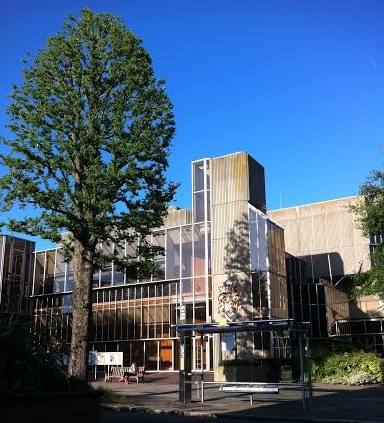
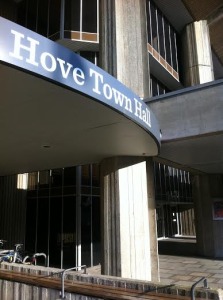
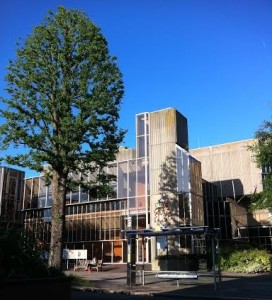
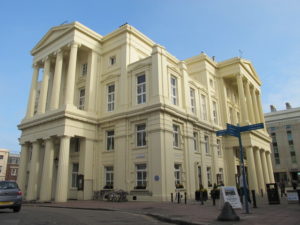

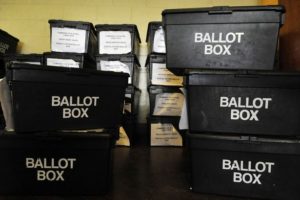






There are no proposals for an elected mayor for Brighton and Hove.
Thank God for that!!!
Both Cabinet and directly elected mayor systems are anti-democratic, provide temptation and opportunity for ethically challenged politicians which would be hard to contain or challenge. Councillors would end up as cardboard cutouts parked in chairs or excluded and only heard from in the media whining.
Think Hitler, think Trump, think ruining London’s skyline (Ken Livingstone & Boris Johnson).
Think: erasing political checks & balances.
@Warren Morgan – it would seem that Frank le Duc’s contact thinks different. Maybe you should have a chat with him and find out what he knows.
You told us you weren’t developers but are going to stump up £50m with Hyde Group to do exactly that.
Loss of good long term staff whilst unable to get rid of appallingly inept people is a core problem for BHCC!!!!
No amount of tnkering with how cllrs organise can compensate gor this!
The full report was posted on the Radio Reverb website, but then mysteriously removed! It was written in that careful, dull way which means you have to read between the lines.
One thing it certainly said clearly was the current system wasn’t working and there should be a new settlement. That seems to suggest committees should be replaced and we all know there are only two options if the council does choose to scrap committees: cabinet or mayor!
The council’s only just scrapped its cabinet. It does rather seem to suggest another attempt to foist an elected mayor on us. Perhaps the council’s top brass haven’t told the leader what they aim to do.
The report did also say the council won’t decide on any changes until after the 2019 elections, as it says in the article above.
The trouble is the three-way political divide in Brighton and Hove. Whether or not we end up with a hung council yet again, at least committees allow all of our councillors to be involved in making decisions.
Instead of keep getting distracted by so-called governance, I would be more impressed if the politicians and council staff spent their time focused on making the committee system work.